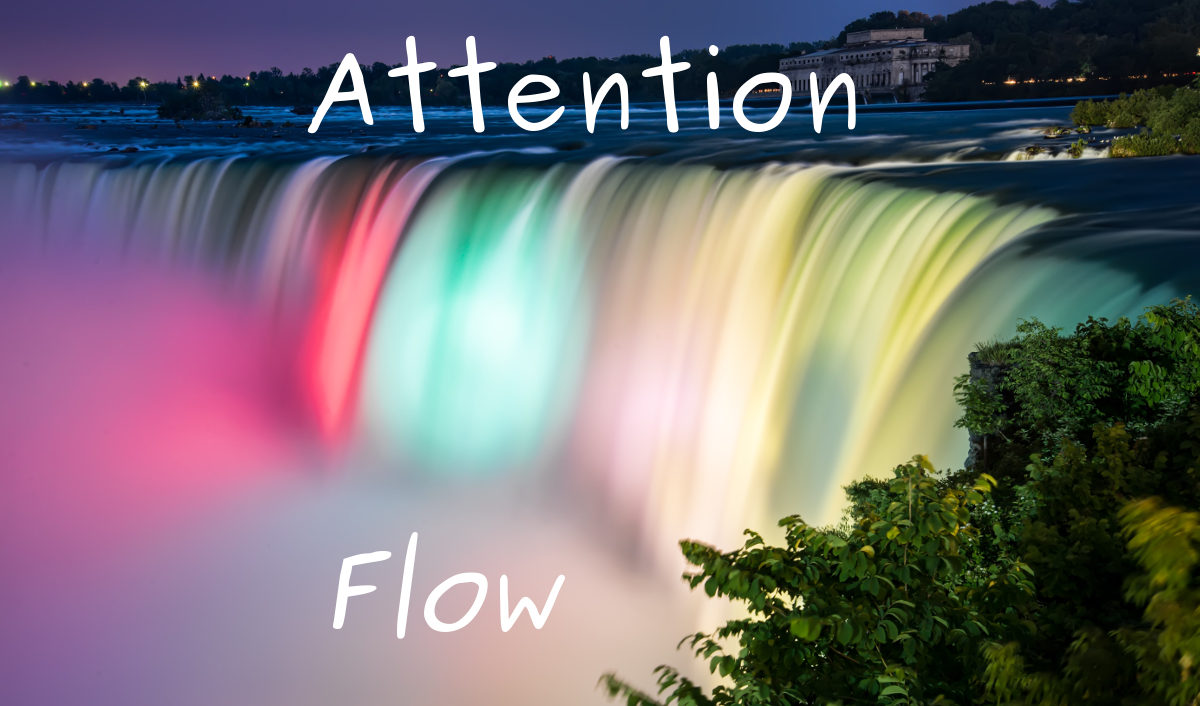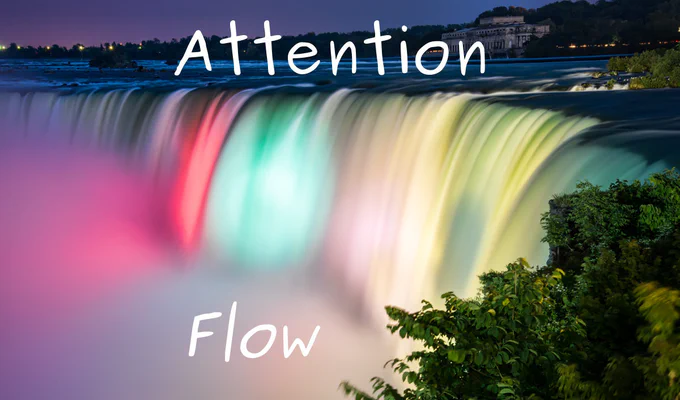
This is my 2nd official toastmaster speech. Read more about toastmasters here.
Of course what i’ve written is only a portion of what I wanted to say, there are many more things to be added but I needed to squeeze as much info as I could in a 6 minute speech.
Attention, Flow and Multitasking
Have you ever wondered why some people can do so many things in 24
hours. While others waste time.
What’s the secret? Well, pay attention, you’re about to find out.
Every technological advancement is due to many people concentrating and paying attention to finish the task at hand.
Attention is therefore the currency of modern man. But our attention is under attack. Everyone wants a bit of it.
Take any 5 minute portion of our modern life. We are constantly bombed
with more information than the people in the 1980’s where getting in a
day.
This is the equivalent to 127 newspapers.
We are truly overloaded with information. Most information is so irrelevant that it takes away our energy while providing nothing in return.
We can consciously process 120 bits of data every second. Being able to
concentrate at what someone is saying takes around 60 bits.
We simply can’t process what two people are saying at the same time.
No wonder there are so many quarrels in the world! Attention is exremely limited!
There are so many interesting things to do in life. I know because I
often want to do them all. But it just isn’t possible. We need to focus
our attention on one thing at a time.
This brings us to the myth of multitasking. "being able to do multiple
things at once"
However, there are numerous researches which indicate that multitaskers
perform far worse per overall than those who don’t multitask.
Multitasking is not efficient at all. You’re being active without being
productive. Wasting time and energy. It’s been estimated that $650
BILLION are wasted each year in US businesses alone due to multitasking
But how come?
Well, the brain is built in a way that it can listen to music and walk
at the same time. This happens because there are different proceses that
take place in different parts of of the brain.
You can drive a car and talk to someone but this does not mean that
you’re multitasking. NO, your cerebellum is on autopilot when you’re
driving. The same happens when you’re talking.
This is why we often get to our destination and have NO recollection of
events on the road.
We live on autopilot. This is why time flies.
The word multitask appeared in a research paper at IBM in 1965 and it
only refered to computers. It has been "misadapted" to humans
Computers can multitask because they switch very fast from one task to
the other.
Our brains work between 8 HZ - and 14 HZ when we are relaxed but alert.
Whenever we are highly alert and focused it increases to 14 HZ to 30
HZ.
Let’s compare it to a computer processor which works at 2.5 GHZ. We can
clearly see that the processor has a frequency that is 100.000.000 ONE
HUNDERD MILLION times faster.
Of course it can "switch" between different actions so fast that we
barely notice.
Now, each switch requires a lot of time and energy to setup a new context, we break the flow. It’s estimated that some interruptions can even cause a distruption of the state of mind that can be between 10 and 30 minutes. Imagine being interrupted 10 times a day. You;re wasting 3 hours of context switching.
Anything that requires conscious concentration can never be multitasked
because of the context switching cost.
Each interruption causes people to lose time switching from one context
to the other. This interrupts the most important aspect of concentration
which is called FLOW.
Mihaly Cikszentmihaly said that flow is the secret to happiness.
Flow is a special state of conscious concentration when attention is
focused on solving a creative problem.
Flow is attained when a person has gathered experience on a certain
subject.
+ This is why It's extremely bad to interrupt someone who is in the state of deep concentration or flow. + Top performes who know that attention and concentration is limited protect it with the uttermost care.
They’ve understood that not only time is very valuable but attention is
extremely limited. They void e-mail, social media, TV and any
distractions while concentrating.
They protect their time by planing hours of solitude when they can work
early in the day when energy and attention is fresh. These creativity
timeframes avoid any distractions.
Socializing and management activities are done later in the day A
Another important aspect is taking time to relax so that creativity can
blossom.
A good combination of sleep and relaxing activities can help anyone
become highly creative.
Specialization leads to mastery. Though mastery can only be attained by
concentration, attention and continuous exercise.
Focus my dear friends is the key to success and achieving anything. An
unfocused mind doesn’t have a change.
As as a conclusion
Energy and attention must be focused on only one goal at a time.
Avoiding distractions helps retain mental energy. Multitasking has a
very high mental cost.
COncentrate on doing one thing at a time without being interrupted and
you might have a chance to achieve extraordinary things.
